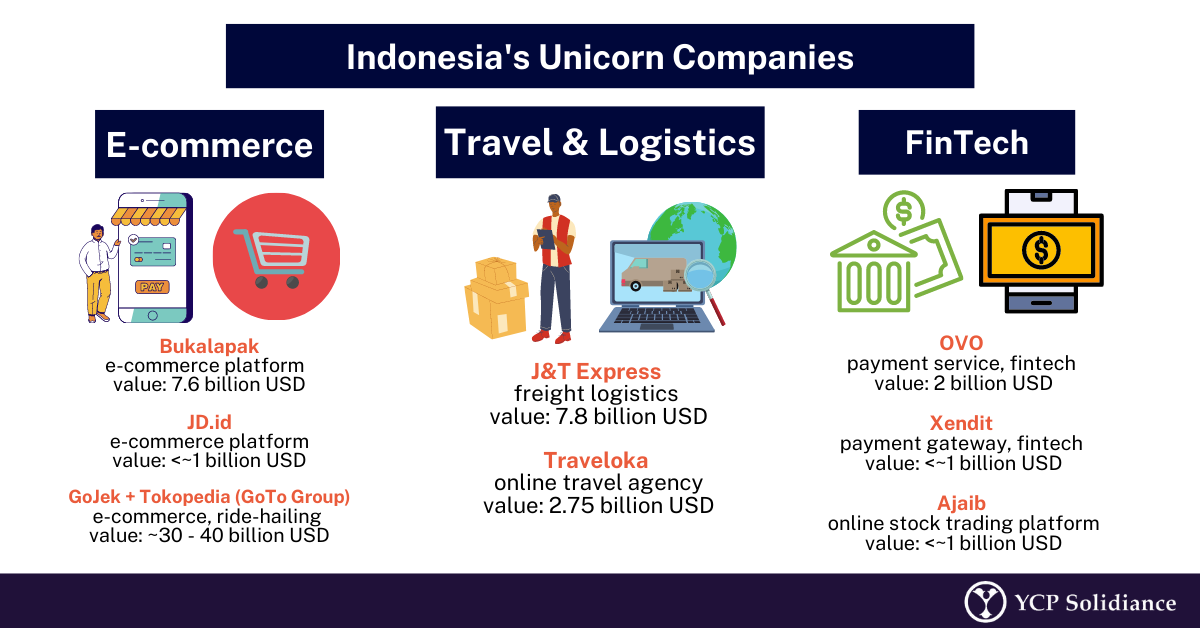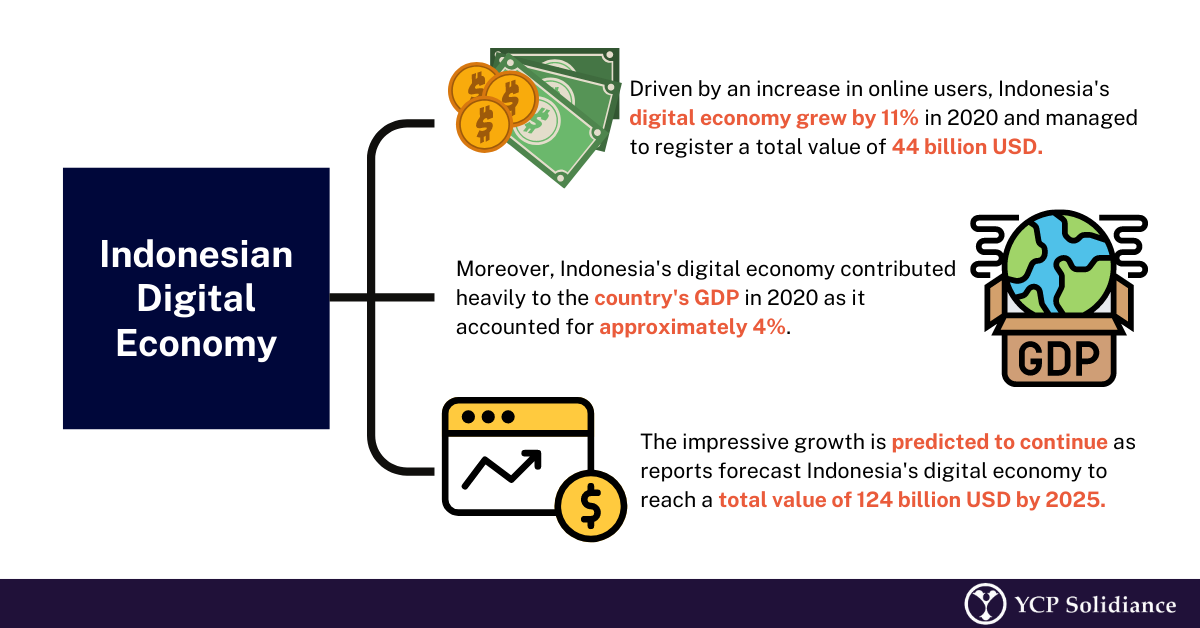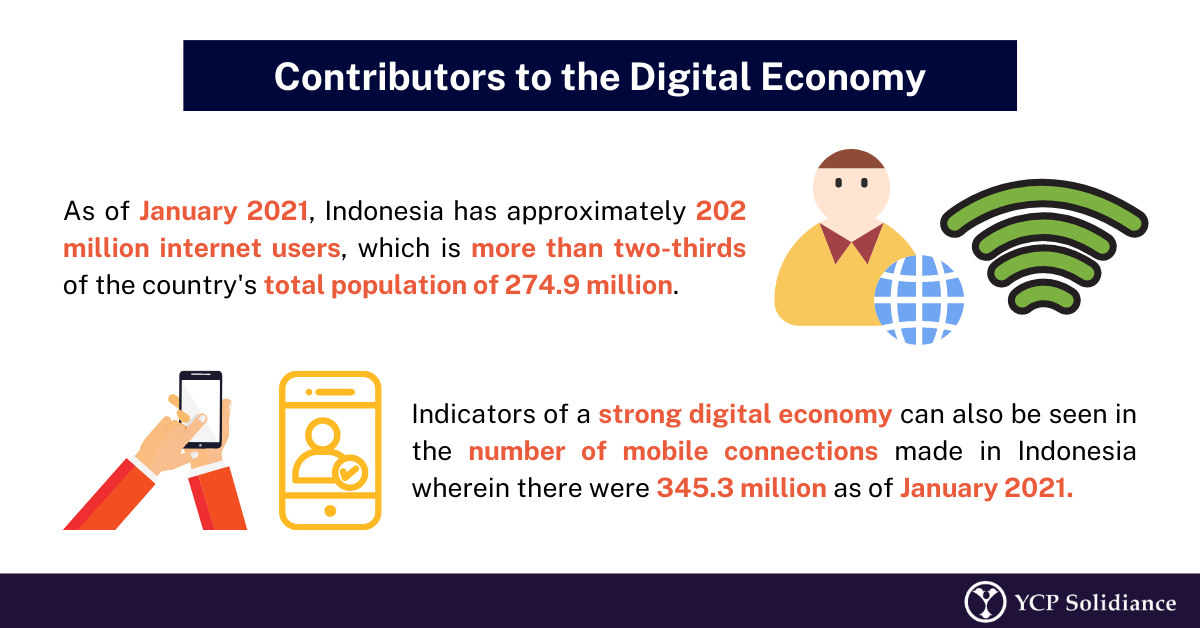Only two years after its launch, online stock-trading platform Ajaib has managed to become the newest Indonesian unicorn – a term that commonly refers to a start-up company’s value reaching the 1 billion USD mark. As Indonesia’s latest unicorn, Ajaib now brings the country’s total to 8, which includes prominent enterprises such as e-commerce platform Bukalapak, multi-service application Gojek, and online travel agency Traveloka.
While Indonesia’s eight unicorns may seem modest in comparison to the 800 or so other unicorns in the world, it is quite significant especially when considering that there are only 40 in Southeast Asia. As such, the emergence of these Indonesian unicorns indicates the possibility of strong economic growth for the country post-COVID-19, but more importantly, it also signifies that Indonesia and its citizens have managed to foster a culture which encourages business development and future investment opportunities. 
Factors Contributing to Development
Perhaps the main factor that has encouraged the emergence of these unicorns is the rapid advancement in Indonesia’s digitalization efforts, which have directly benefitted the eight unicorns as their businesses operate in digitally adapted industries like fintech, e-commerce, and logistics. Amplified due to the circumstances presented by the pandemic, many companies and consumers have activated online and turned to digital spaces.

This growth and development can be attributed to an influx of investors, both from Indonesian citizens and private companies who have become increasingly aware of Indonesia’s impressive digital potential. Just last September, The Star reported that Indonesia’s capital market registered 2.3 million new investors after only a year and a half since the beginning of the pandemic. The increase has been spearheaded by millennials, which is encouraging for the future of Indonesia’s economy as it signifies and suggests the younger populace’s sustained eagerness to invest for years to come. 
Similarly, start-up companies have also benefitted from the funding of high-profile individuals and investment groups. For example, Indonesian start-up Ula—a business-to-business (B2B) e-commerce marketplace—recently secured 87 million USD in its Series B funding from noteworthy investors such as Chinese tech conglomerate Tencent and Amazon founder Jeff Bezos.
By attracting significant investment from a plethora of sources, the focus now becomes on how the Indonesian government can capitalize on the increased interest—most notably, through Indonesia’s Omnibus Law.
Although the bill aims to radically transform and improve existing laws related to several areas of business (such as licensing, foreign investment restrictions, labor laws, etc.), the Omnibus Law has been met with resistance by millions of citizens. According to an article by China Dialogue, the protesting groups claim that the proposed changes—while beneficial for future-forward businesses like fintech companies—comes at the expense of minorities, labor unions, and the rights of workers in industries akin to agriculture.
Moving forward, Indonesia will need to strike a balance between reform that encourages business development while also playing close attention to those who are vulnerable, and incorporating innovative digital solutions that help these communities. By leveraging the rapid digitalization that the country is experiencing, Indonesia can enact policy reform that boosts connectivity and access that ultimately works toward digital inclusivity. Considering reports that the internet users in Indonesia increased by 27 million, or 16% between 2020 and 2021, the country’s businesses and citizens are well on its way to unleashing Indonesia’s digital potential—with more unicorn companies sure to come.
For more updates on how unicorns in Asia are developing, subscribe to our newsletter here.







